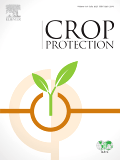|
Persistent Identifier
|
doi:10.7910/DVN/24218 |
|
Publication Date
|
2014-01-19 |
|
Title
| Knowledge, attitudes and practices of farmers on rodent pests and their management in the lowlands of the Sierra Madre Biodiversity Corridor, Philippines |
|
Author
| Stuart, AlexanderSchool of Biological Sciences, The University of Reading, Berkshire
Prescott, ColinSchool of Biological Sciences, The University of Reading, Berkshire
Singleton, GrantIRRI-CESD
Joshi, RavindraDepartment of Agriculture e Philippine Rice Research Institute |
|
Point of Contact
|
Use email button above to contact.
Grant R. Singleton (IRRI-CESD) |
|
Description
| A survey of the knowledge, attitudes and practices (KAP) of 100 rice farmers and 50 coconut farmers was conducted in the coastal lowland agro-ecosystems of the Sierra Madre Biodiversity Corridor, Luzon, Philippines to identify current rodent management practices and to understand the extent of rat damage and the attitudes of farmers to community actions for rodent management. Pests were most commonly listed as one of the three most important rice and coconut production constraints. Other major crop production constraints were typhoons and insufficient water. Farmers consider rats to be the major pest of coconut and of rice during the wet season rice crop, with average yield losses of 3.0% and 13.2%, respectively. Rice and coconut farmers practised a wide range of rodent management techniques. These included scrub clearance, hunting and trapping. Of the 42 rice farmers and 3 coconut farmers that applied rodenticides to control rodents, all used the acute rodenticide, zinc phosphide. However, only ten rice farmers (23.8%) applied rodenticides prior to the booting stage and only seven farmers (15.6%) conducted pre-baiting before applying zinc phosphide. The majority of farmers belonged to farmer organisations and believed that rat control can only be done by farmers wo rking together. However, during the last cropping season, less than a third of rice farmers (31.2%) applied rodent management as a group. In order to reduce the impact of rodents on the farmers of the coastal lowlands of the Sierra Madre Biodiversity Corridor, integrated management strategies need to be developed that specifically target the pest rodents in a sustainable manner, and community actions for rodent management should be promoted. |
|
Keyword
| Rodent management
Pest
Crop damage
Farmers' beliefs
Rice
Coconut |
|
Notes
| Subject: null Type: CESD Notes: ; |
|
Production Date
| 2005 |
|
Distributor
| Crop Protection (Elsevier) http://www.journals.elsevier.com/crop-protection 
|
|
Distribution Date
| 2011 |
|
Depositor
| Jean Sabado |
|
Deposit Date
| 2014-01-12 |
|
Date of Collection
| Start Date: 2005-11; End Date: 2005-12 |
|
Related Dataset
| Buckle, A.P., 1990. Recent developments in rice rat control. In: Quick, G.R. (Ed.), Rodents and Rice. Report and Proceedings of an Expert Panel Meeting on Rice Rodent Control. International Rice Research Institute, Philippines, pp. 35-47.; Singleton, G.R., 2003. Impacts of rodents on rice production in Asia. Discussion Paper. International Rice Research Institute, Philippines. No. 45.; Sumangil, J.P., 1990. Control of ricefield rats in the Philippines. In: Quick, G.R. (Ed.), Rodents and Rice. Report and Proceedings of an Expert Panel Meeting on Rice Rodent Control. International Rice Research Institute, Philippines, pp. 35-47. |
